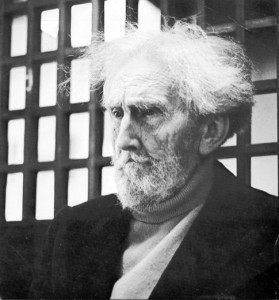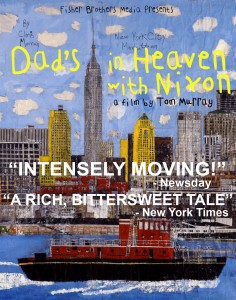Ezra Pound, the greatest poet of the 20th century – and one of my favorite – was a fascist and anti-Semite. As a child of Holocaust survivors, it has always been difficult for me to appreciate Pound’s great artistry without highly charged and mixed emotions. But I still consider his writing among the highest art. Consider some excerpts from his monumental epic poem, The Cantos.

Canto I recounts Homer’s Odyssey in Pound’s stunning first person verse, where images, deep emotions, and the rhythm and sound of the poet’s words powerfully converge.
“And then went down to the ship,
Set keel to breakers
‘forth on the godly sea, and
We set up mast and sail on that swart ship,
Bore sheep aboard her, and our bodies also
Heavy with weeping, so winds from sternward
Bore us out onward with bellying canvas,
Circe’s this craft, the trim-coifed goddess.
Then sat we amidships, wind jamming the tiller,
Thus with stretched sail, we went over sea till day’s end.
Sun to his slumber, shadows o’er all the ocean,
Came we then to the bounds of deepest water,
To the Kimmerian lands, and peopled cities
Covered with close-webbed mist, unpierced ever
With glitter of sun-rays
Nor with stars stretched, nor looking back from heaven
Swartest night stretched over wretched men there.
The ocean flowing backward, came we then to the place
Aforesaid by Circe.
Here did they rites, Perimedes and Eurylochus,
And drawing sword from my hip
I dug the ell-square pitkin;
Poured we libations unto each the dead,
First mead and then sweet wine, water mixed with white flour.
Then prayed I many a prayer to the sickly death’s-head;
As set in Ithaca, sterile bulls of the best
For sacrifice, heaping the pyre with goods,
A sheep to Tiresias only, black and a bell-sheep.
Dark blood flowed in the fosse,
Souls out of Erebus, cadaverous dead, of brides
Of youths and at the old who had borne much;
Souls stained with recent tears, girls tender,
Men many, mauled with bronze lance heads,
Battle spoil, bearing yet dreory arms,
These many crowded about me; with shouting,
Pallor upon me, cried to my men for more beasts;
Slaughtered the herds, sheep slain of bronze;
Poured ointment, cried to the gods,
To Pluto the strong, and praised Proserpine;
Unsheathed the narrow sword,
I sat to keep off the impetuous impotent dead,
Till I should hear Tiresias.”
Now Pound/Odysseus meets the soul of a man who was left behind, unburied, and he continues sorrowfully:
“But first Elpenor came, our friend Elpenor,
Unburied, cast on the wide earth,
Limbs that we left in the house of Circe,
Unwept, unwrapped in sepulchre, since toils urged other.
Pitiful spirit.And I cried in hurried speech:
“Elpenor, how art thou come to this dark coast?
Cam’st thou afoot, outstripping seamen?”
And he in heavy speech:
“Ill fate and abundant wine. I slept in Circe’s ingle.
Going down the long ladder unguarded,
I fell against the buttress,
Shattered the nape-nerve, the soul sought Avernus.”
“Ill fate” – we are all victims of events beyond our control. “Abundant wine” – well, there are things that are in our control. Hear now what Elpenor states – a plea for being remembered:
“But thou, O King, I bid remember me, unwept, unburied,
Heap up mine arms, be tomb by sea-board, and inscribed:
A man of no fortune, and with a name to come.”
“A name to come” – perhaps that is what Pound the artist seeks or envisions.
“And Anticlea came, whom I beat off, and then Tiresias Theban,
Holding his golden wand, knew me, and spoke first:
“A second time? why? man of ill star,
Facing the sunless dead and this joyless region?
Stand from the fosse, leave me my bloody bever
For soothsay.”
And I stepped back,
And he strong with the blood, said then: “Odysseus
Shalt return through spiteful Neptune, over dark seas,
Lose all companions.”
“Lose all companions” – Pound the artist is alone. Ezra Pound the man was captured at the end of World War II and spent time living alone in a cage that was his prison. He was eventually found not guilty of treason by reason of insanity. I recall that Pound remarked to a poet friend who visited him in the American insane asylum that was his residence in the fifties: “Bird in cage does not sing.”
Turning far ahead to Canto LXXXI is this memorable and powerfully passionate verse:
“What thou lovest well remains,
the rest is dross
What thou lov’st well shall not be reft from thee
What thou lov’st well is thy true heritage
Whose world, or mine or theirs
or is it of none?
First came the seen, then thus the palpable
Elysium, though it were in the halls of hell,
What thou lovest well is thy true heritage
What thou lov’st well shall not be reft from thee
The ant’s a centaur in his dragon world.
Pull down thy vanity, it is not man
Made courage, or made order, or made grace,
Pull down thy vanity, I say pull down.
Learn of the green world what can be thy place
In scaled invention or true artistry,
Pull down thy vanity,
Paquin pull down!
The green casque has outdone your elegance.
“Master thyself, then others shall thee bear”
Pull down thy vanity
Thou art a beaten dog beneath the hail,
A swollen magpie in a fitful sun,
Half black half white
Nor knowst’ou wing from tail
Pull down thy vanity
How mean thy hates
Fostered in falsity,
Pull down thy vanity,
Rathe to destroy, niggard in charity,
Pull down thy vanity,
I say pull down.
But to have done instead of not doing
This is not vanity
To have, with decency, knocked
That a Blunt should open
To have gathered from the air a live tradition
or from a fine old eye the unconquered flame
this is not vanity.
Here error is all in the not done,
all in the diffidence that faltered . . .”
The final verse, Canto 120, was published posthumously. I think of this verse often. Perhaps Pound here admits the errors of his life. Perhaps it is about how all people err. This is the entire Canto 120:
“I have tried to write Paradise
Do not move
let the wind speak
that is paradise
Let the Gods forgive what I
have made
Let those I love try to forgive
what I have made.”
(If you like this post and my blog please visit my facebook page here and click “like”)













{ 1 comment… read it below or add one }
You understand Ezra Pound. Thank you.